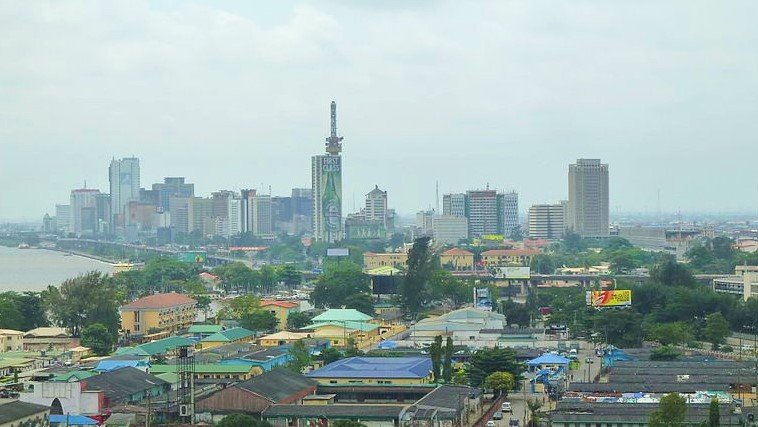Nigeria’s private sector is still growing, but it’s hitting the brakes. Business activity weakened to a four-month low in May, weighed down by persistent inflation and softer customer demand.
The Stanbic IBTC Bank Purchasing Managers’ Index (PMI) for May came in at 52.7 — still above the neutral 50.0 mark that separates growth from contraction — but down from April’s 54.2 reading. That’s the weakest improvement since January, and there are signs the slowdown could linger.
Pace of Business Expansion Slows as Firms Face Softer Demand
A slowdown isn’t a crisis, but it’s definitely a red flag. While firms are still expanding, they’re doing so with far less momentum than earlier this year.
The PMI report highlighted a noticeable cooling in both output and new orders. For context, new orders have been rising consistently since November 2024. But in May, that upward trend softened. Firms reported fewer inquiries and a drop in customer appetite, with many citing softer market conditions.
In a nutshell: businesses are growing, just not with the same energy they had a few months ago.
Employment Takes a Hit for the First Time in Half a Year
Here’s where the pressure becomes more personal. For the first time in six months, employment numbers fell in May.
This comes after months of steady hiring. While some firms are still expanding their operations, others have paused recruitment or even trimmed headcount. It’s a cautious move — a reflection of uncertainty in the broader economy.
One-sentence paragraph here.
And with inflation still biting, it’s not hard to see why companies are getting jittery.

Rising Sales, But Also Rising Costs
Sales are up — but so are costs. The contradiction is squeezing margins and testing customer loyalty.
According to the PMI report, companies increased their purchasing activity for the sixth straight month. Inventories also rose at the fastest pace in three months. That’s good, right?
Not so fast.
Firms say input costs — everything from raw materials to transport — are still “well above” the long-term average. While May’s inflation was slightly softer than April’s, prices remain painfully high. That means companies are hiking their own prices just to stay afloat.
-
Some firms slashed prices anyway, hoping discounts would lure in hesitant buyers.
-
Others passed costs directly onto customers, keeping profit lines steady — at least for now.
That price juggling act could backfire if inflation doesn’t ease soon.
Key Indicators: What the Numbers Show
Let’s lay it out clearly. Here’s a snapshot of Nigeria’s private sector health, straight from the PMI data:
| Indicator | April 2025 | May 2025 | Trend |
|---|---|---|---|
| PMI | 54.2 | 52.7 | Weaker growth |
| New Orders | ↑ | ↑ (slower) | Easing demand |
| Output | ↑ | ↑ (slower) | Less expansion |
| Employment | ↔ | ↓ | First fall in 6 months |
| Input Costs | ↑ | ↑ | Still elevated |
| Output Prices | ↑ | ↑ | High inflation |
This table makes it clear: things are still moving, but the energy is fading.
Inflation and Currency Woes Refuse to Back Down
The weak naira isn’t helping. Currency depreciation continues to push up the cost of imported goods and raw materials. And that’s filtering down into nearly every layer of the economy.
Inflation in May might’ve been slightly more forgiving than earlier this year — but it’s still rough. High transport costs, expensive inputs, and pressure from foreign exchange all combine into a messy cocktail of challenges.
And let’s not forget, a weaker currency also reduces the purchasing power of everyday Nigerians. That dents demand and chips away at consumer confidence.
Still, there’s a sliver of hope. Analysts from Stanbic IBTC believe interest rates could ease later this year if inflation remains manageable. That could loosen up credit and help businesses breathe a little easier.
Sector Breakdown: Manufacturing Holds, Retail Struggles
Not every sector is hurting equally. Some are holding ground better than others.
The PMI report noted solid output growth in:
-
Wholesale
-
Retail
-
Manufacturing
That said, the retail sector in particular seems to be under the most strain from weakening demand. Several companies in this space admitted to slashing prices to keep customers from walking away. That’s a risky game when your costs are still climbing.
Meanwhile, manufacturing firms saw stable growth thanks to bulk orders and increased production capacity. But even they’re not immune — one hiccup in supply chain pricing, and things could tilt quickly.
Outlook: Still Growing, But Clouds on the Horizon
It’s not all doom and gloom. Nigeria’s private sector is still expanding. But if May is anything to go by, the rest of the second quarter could be rocky.
Rising customer numbers and consistent sales have provided a backbone. Still, without a break from high input costs and exchange rate volatility, firms will likely remain cautious — and that could mean slower growth in the months ahead.
Stanbic’s Head of Equity Research, Muyiwa Oni, summed it up well: the pace of improvement has slowed, and that’s worth watching closely.
The good news? The fundamentals haven’t fallen apart.
The bad news? Growth is walking on thinner ice than before.








